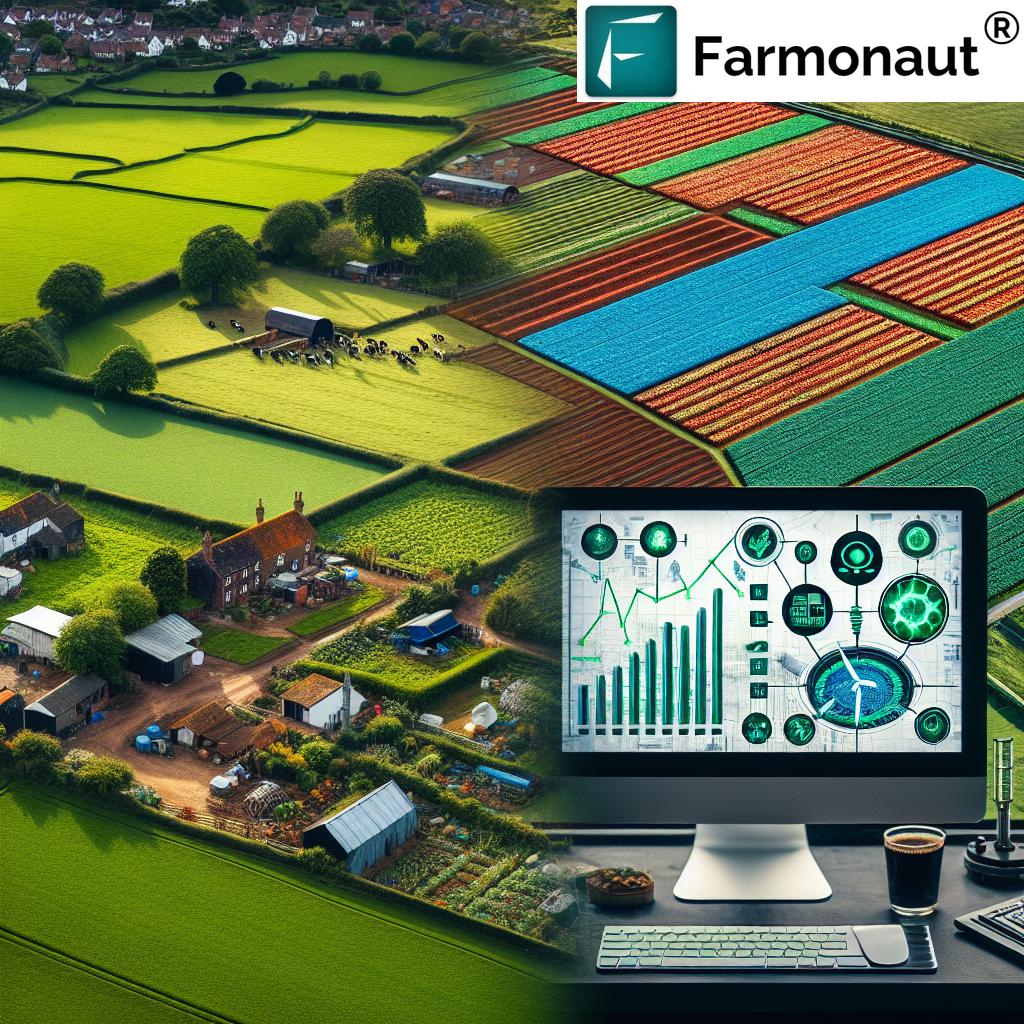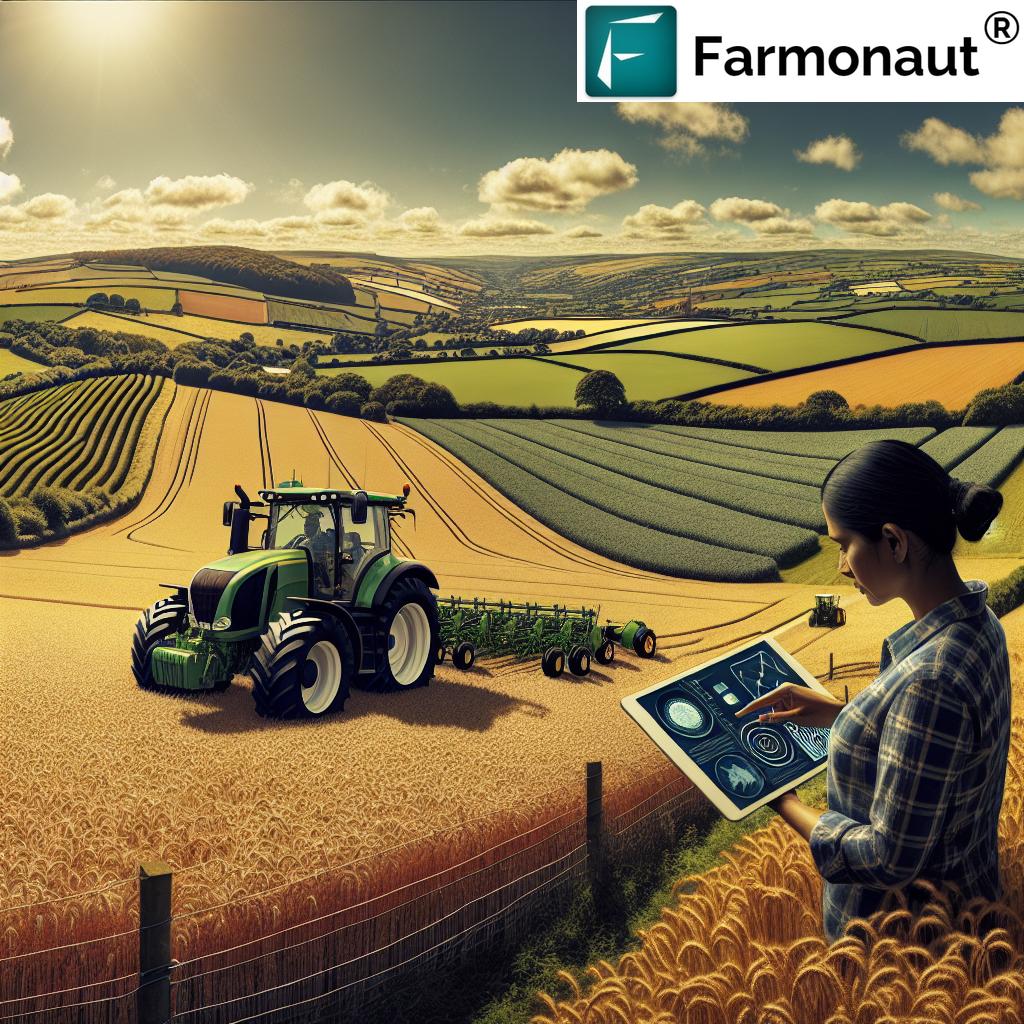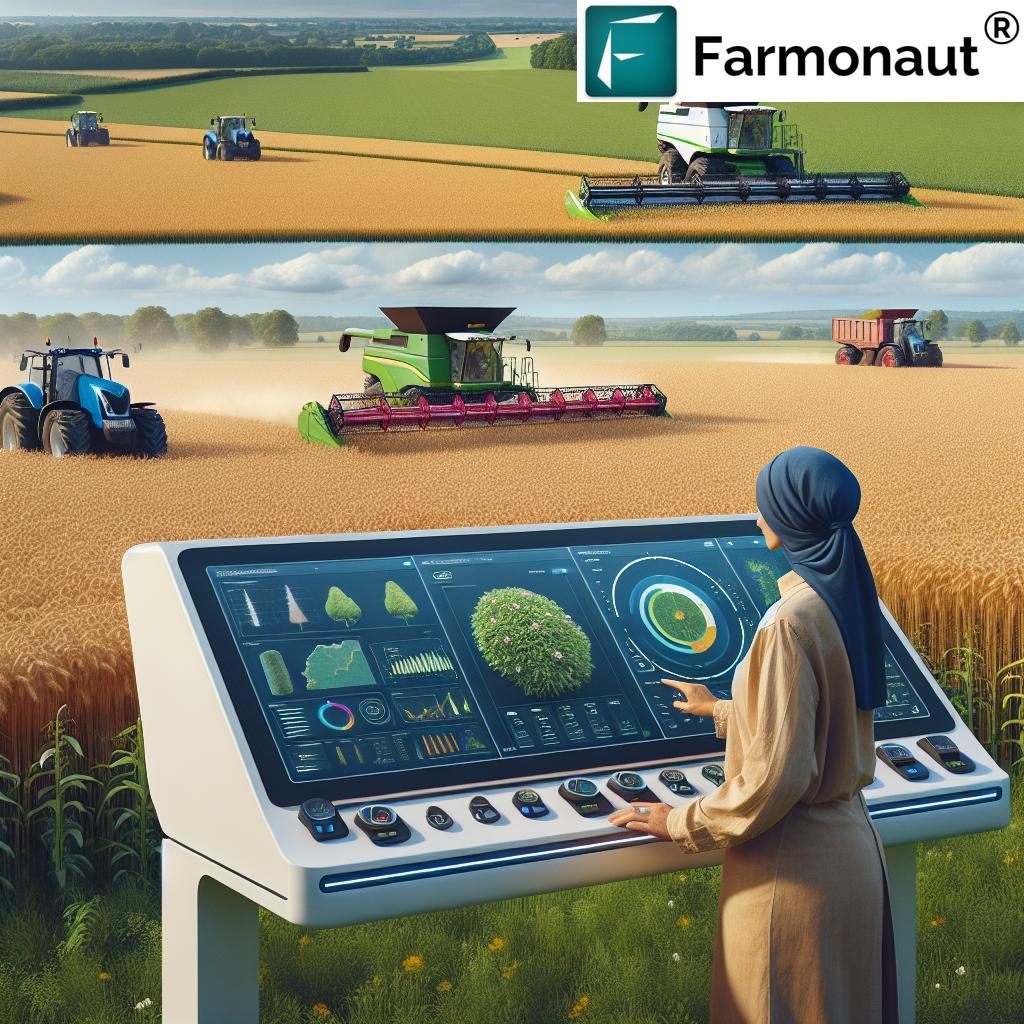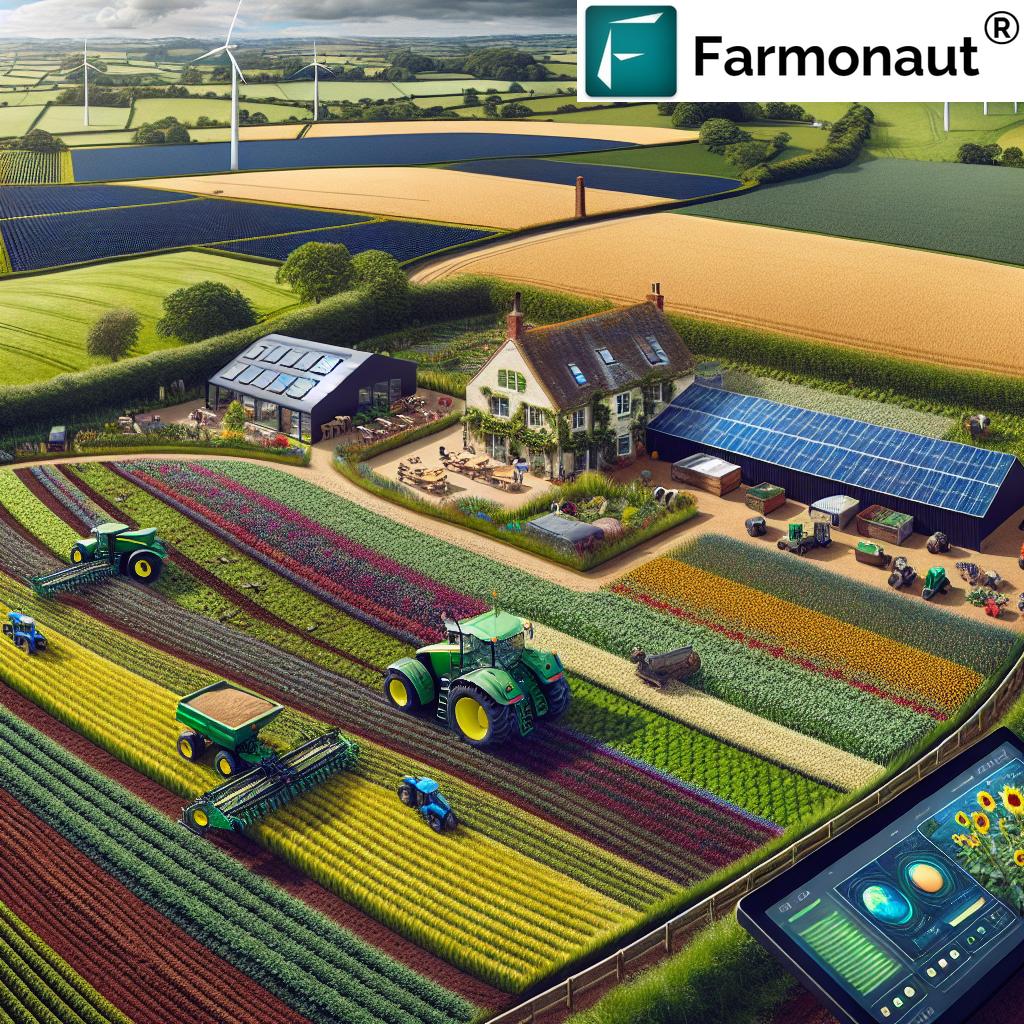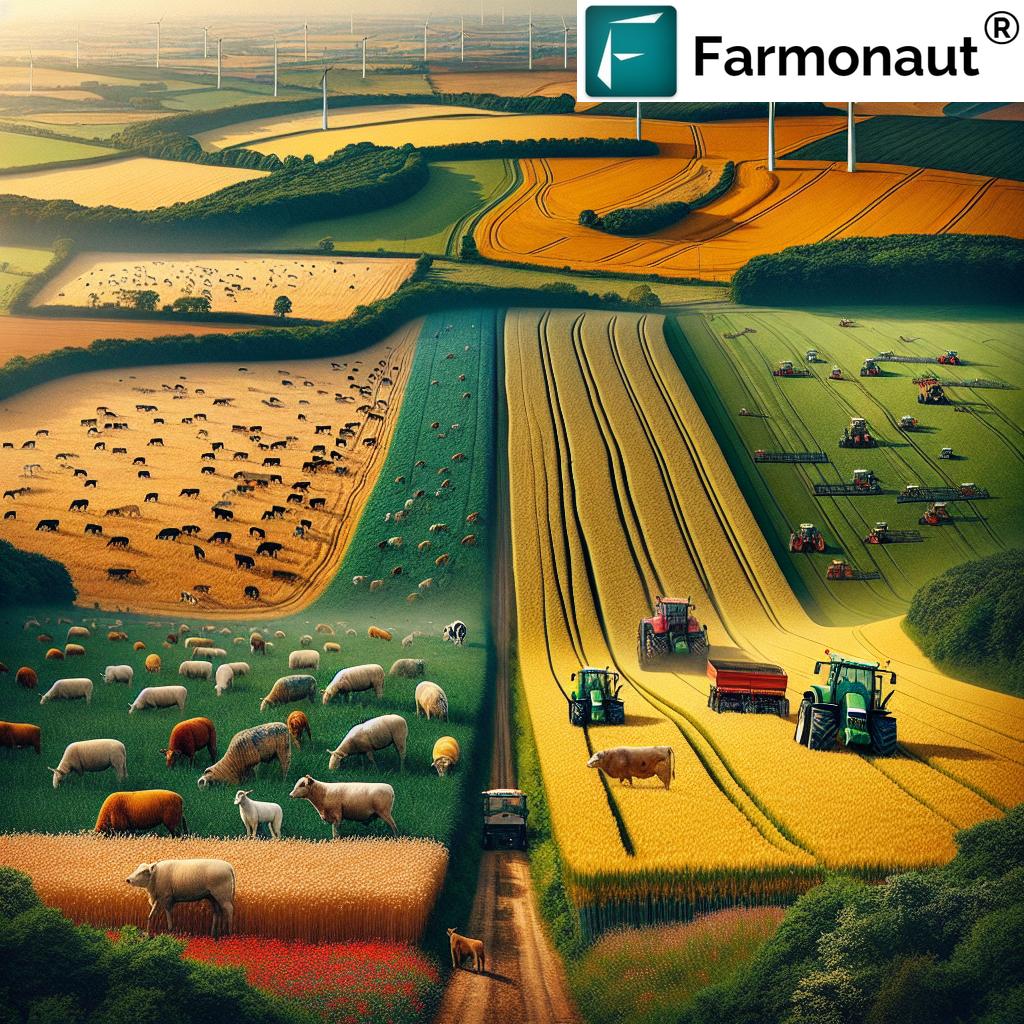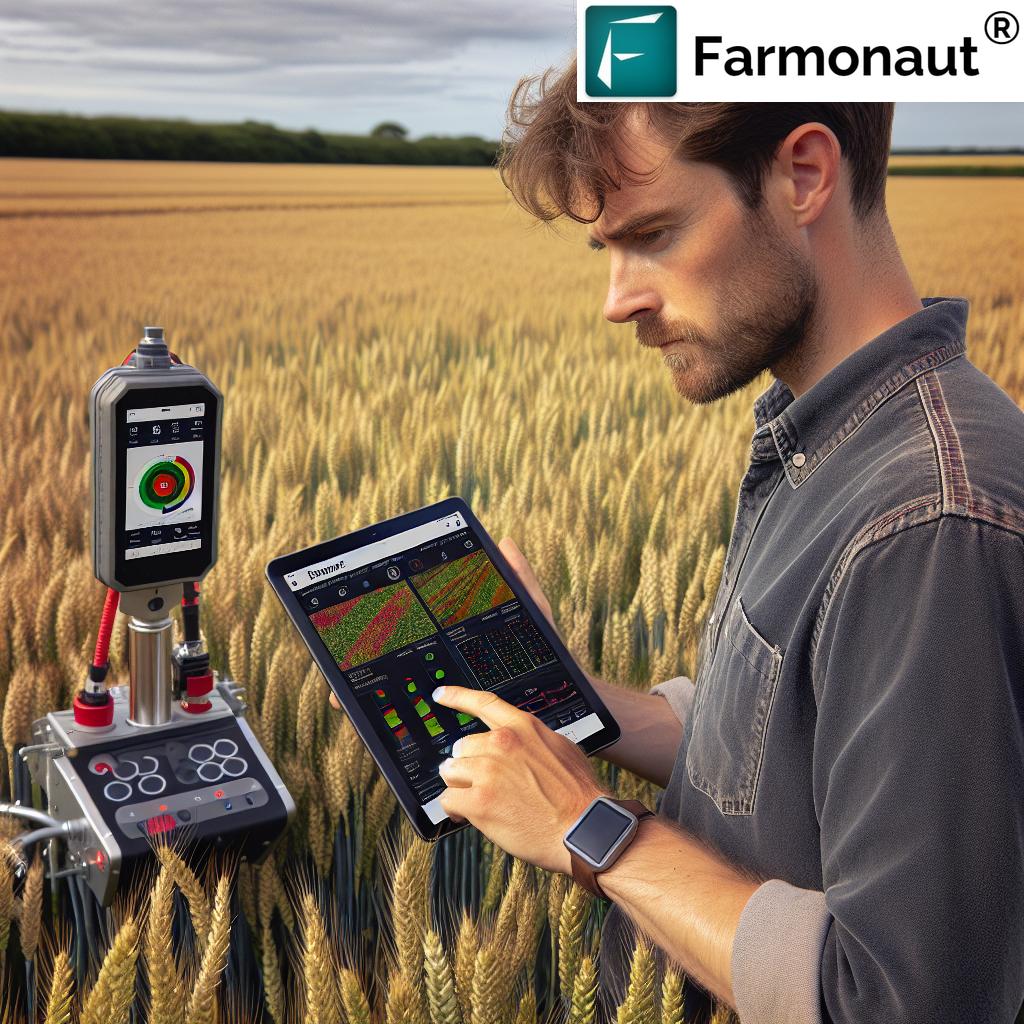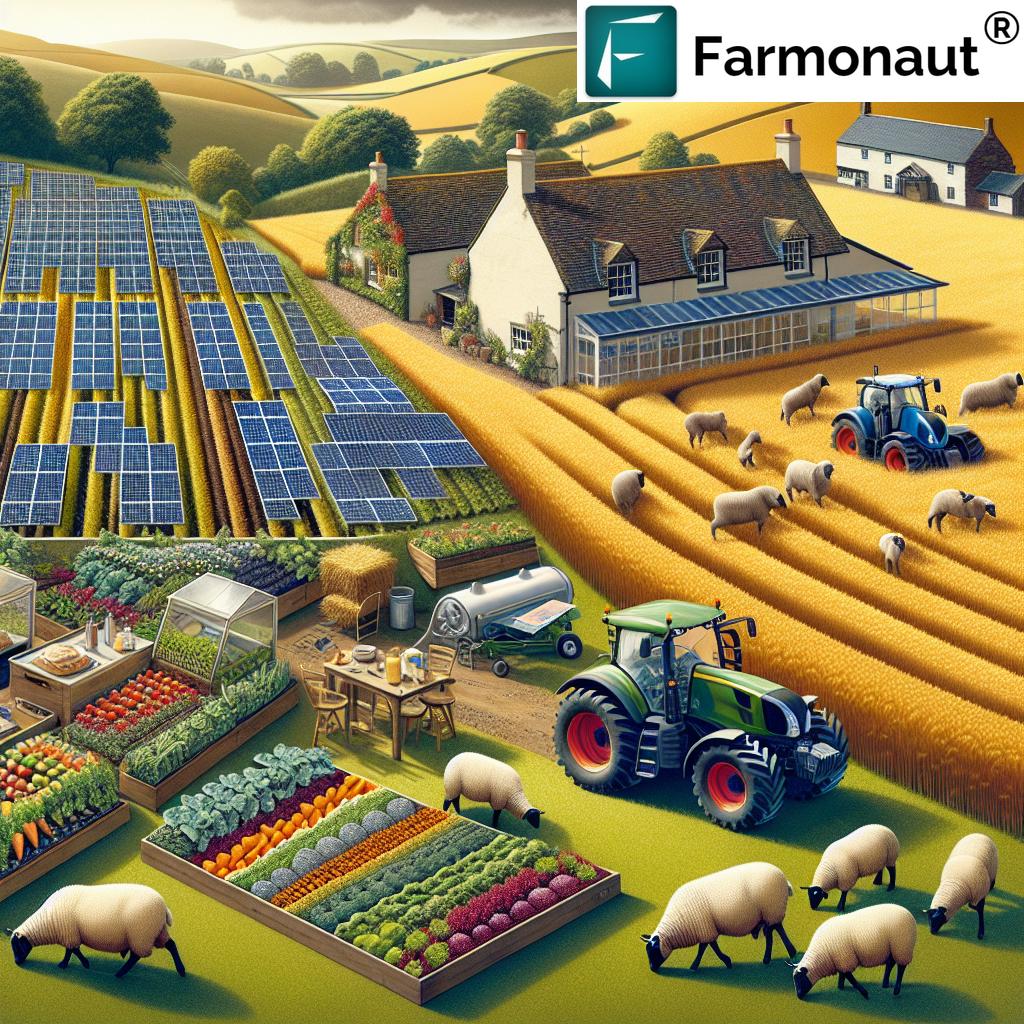Maximizing Farm Profitability: UK’s Sustainable Agroforestry Systems and Smart Crop Management Insights
“UK agroforestry systems can increase land productivity by up to 40% compared to monoculture farming.”
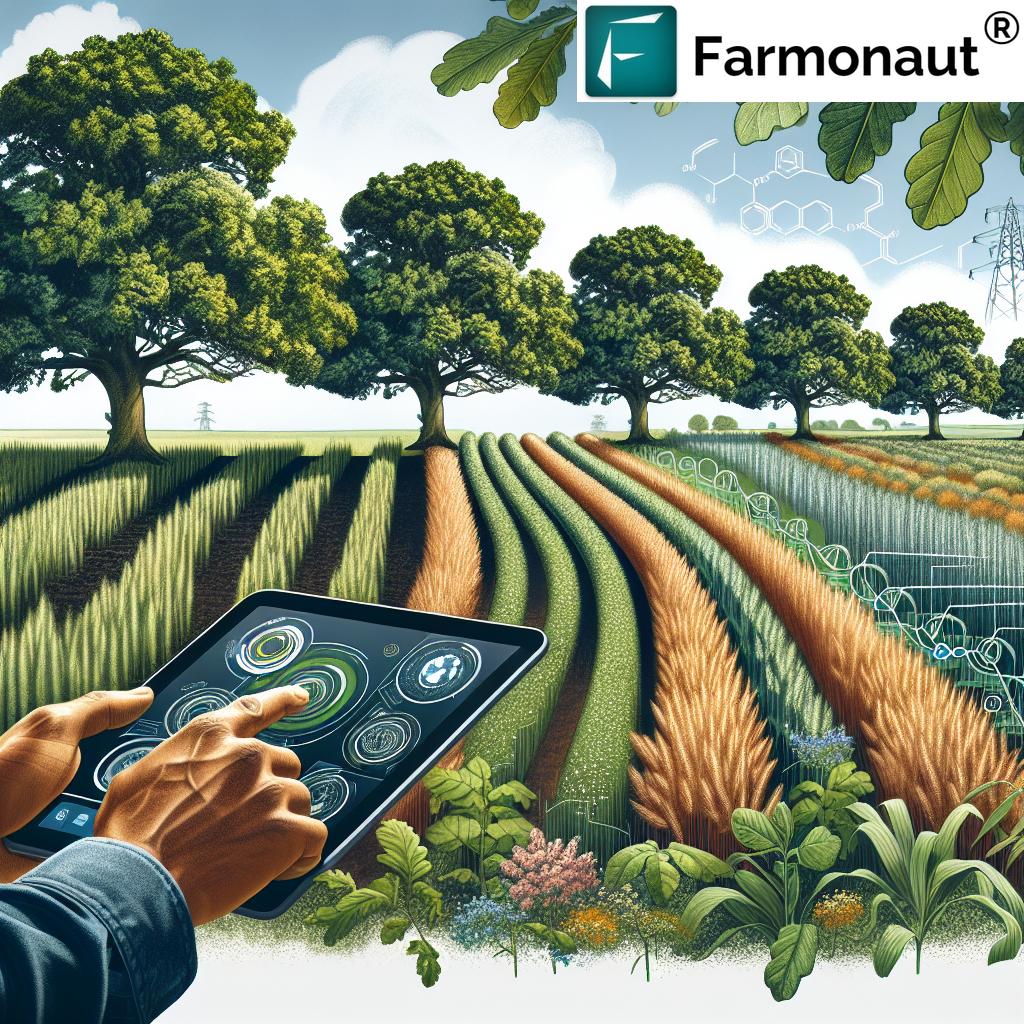
Welcome to our comprehensive guide on maximizing farm profitability through sustainable agroforestry systems and smart crop management in the UK. As we navigate the evolving landscape of British agriculture, we’re witnessing a remarkable transformation driven by sustainable farming practices and precision agriculture technology. In this blog post, we’ll explore how these innovative approaches are revolutionizing the UK’s agricultural sector, offering farmers new ways to enhance crop management and boost farm productivity.
The Rise of Agroforestry in the UK
Agroforestry, the integration of trees and shrubs into crop and animal farming systems, is gaining significant traction in the UK. This sustainable farming practice offers a multitude of benefits, from improved land management to enhanced environmental stewardship. Let’s delve into how agroforestry is reshaping the British agricultural landscape.
Benefits of Agroforestry Systems
- Increased Biodiversity: Agroforestry creates diverse habitats, supporting a wide range of flora and fauna.
- Soil Health Improvement: Trees help prevent soil erosion and enhance soil structure.
- Carbon Sequestration: Agroforestry systems significantly contribute to carbon capture and storage.
- Diversified Income Streams: Farmers can benefit from multiple products, including crops, timber, and fruits.
The integration of agroforestry systems in the UK is not just an environmental choice; it’s a smart business decision. By adopting these practices, farmers can tap into new markets, reduce input costs, and create resilient farming systems that withstand climate challenges.
Agroforestry and the Sustainable Farming Incentive
The UK government’s Sustainable Farming Incentive (SFI) scheme is playing a crucial role in promoting agroforestry. This initiative provides funding and support for farmers who adopt environmentally friendly practices, including agroforestry. Under the SFI, farmers can receive payments for:
- Planting and maintaining trees on agricultural land
- Creating woodland edges and shelterbelts
- Establishing silvopastoral systems
These incentives are driving the adoption of agroforestry across England, contributing to the country’s environmental goals while supporting farm profitability.
Smart Crop Management: Leveraging Technology for Precision Agriculture
As we embrace agroforestry, we’re also witnessing a technological revolution in crop management. Precision agriculture technology is transforming how UK farmers approach their operations, offering data-driven insights and tools to optimize every aspect of farming.
Key Technologies Driving Smart Farming
- Satellite Imagery and Remote Sensing: These technologies provide real-time crop health monitoring, allowing farmers to detect issues early and respond promptly.
- AI and Machine Learning: Advanced algorithms analyze farm data to provide personalized recommendations for crop management.
- IoT Sensors: These devices collect crucial data on soil moisture, temperature, and other environmental factors.
- Crop Management Software: Integrated platforms help farmers manage all aspects of their operations, from planting to harvest.
One company at the forefront of this technological revolution is Farmonaut. Their advanced satellite-based farm management solutions are making precision agriculture accessible and affordable for farmers across the UK. 
Farmonaut’s platform offers valuable services such as real-time crop health monitoring, AI-based advisory systems, and resource management tools. By leveraging these technologies, UK farmers can make informed decisions about irrigation, fertilizer usage, and pest management, ultimately optimizing crop yields and reducing resource wastage.
Agricultural Market Insights: Trends in UK Farming
Understanding market trends is crucial for maximizing farm profitability. Let’s explore some key insights into the UK’s agricultural markets, focusing on cereals, oilseeds, and horticultural crops.
Cereals Market
- The UK cereals market has seen fluctuations due to global supply and demand dynamics.
- Wheat remains a dominant crop, with increasing demand for high-quality milling wheat.
- Barley production is significant, driven by both domestic feed demand and export opportunities.
Oilseeds Sector
- Rapeseed continues to be the primary oilseed crop in the UK.
- There’s growing interest in alternative oilseed crops like linseed and sunflower, driven by health trends.
- The market is influenced by global oilseed prices and biofuel policies.
Horticultural Crops
- The UK’s horticultural sector is diverse, encompassing fruits, vegetables, and ornamental plants.
- There’s increasing demand for locally grown produce, driven by consumer preferences for sustainability.
- Protected cropping techniques are expanding, allowing for year-round production of certain crops.
These market insights underscore the importance of diversification and adapting to consumer trends. By integrating agroforestry systems and leveraging smart farming solutions, UK farmers can position themselves to capitalize on these market opportunities.
Farm Data Analytics: Shaping Decision-Making Processes
In the era of smart farming, data is king. Farm data analytics is revolutionizing decision-making processes, allowing farmers to make informed choices based on real-time information and historical trends.
Key Areas of Farm Data Analytics
- Yield Prediction: Advanced algorithms can forecast crop yields based on various factors, helping farmers plan their harvest and marketing strategies.
- Resource Optimization: Data analytics helps in optimizing the use of water, fertilizers, and pesticides, reducing costs and environmental impact.
- Weather Forecasting: Precise, localized weather predictions enable farmers to make timely decisions on planting, harvesting, and crop protection.
- Market Analysis: Data-driven insights into market trends help farmers make informed decisions about crop selection and pricing strategies.
Farmonaut’s platform exemplifies the power of farm data analytics. Their AI-driven Jeevn advisory system delivers real-time insights and expert crop management strategies, helping UK farmers improve productivity and efficiency. Explore Farmonaut’s API for advanced data integration.
“The Sustainable Farming Incentive scheme in the UK aims to reduce agricultural carbon emissions by 10% by 2030.”
The Sustainable Farming Incentive: A Closer Look
The Sustainable Farming Incentive (SFI) is a cornerstone of the UK’s agricultural policy post-Brexit. This scheme aims to reward farmers for adopting environmentally friendly practices, including those related to agroforestry and smart crop management.
Key Features of the SFI
- Soil Management: Payments for improving soil health and structure.
- Integrated Pest Management: Incentives for reducing pesticide use and adopting natural pest control methods.
- Hedgerow Management: Support for maintaining and enhancing hedgerows, which play a crucial role in agroforestry systems.
- Grassland Management: Payments for improving the biodiversity of grasslands.
The SFI aligns perfectly with the principles of agroforestry and smart farming. By participating in this scheme, UK farmers can not only contribute to environmental conservation but also access additional funding streams to support their transition to more sustainable practices.
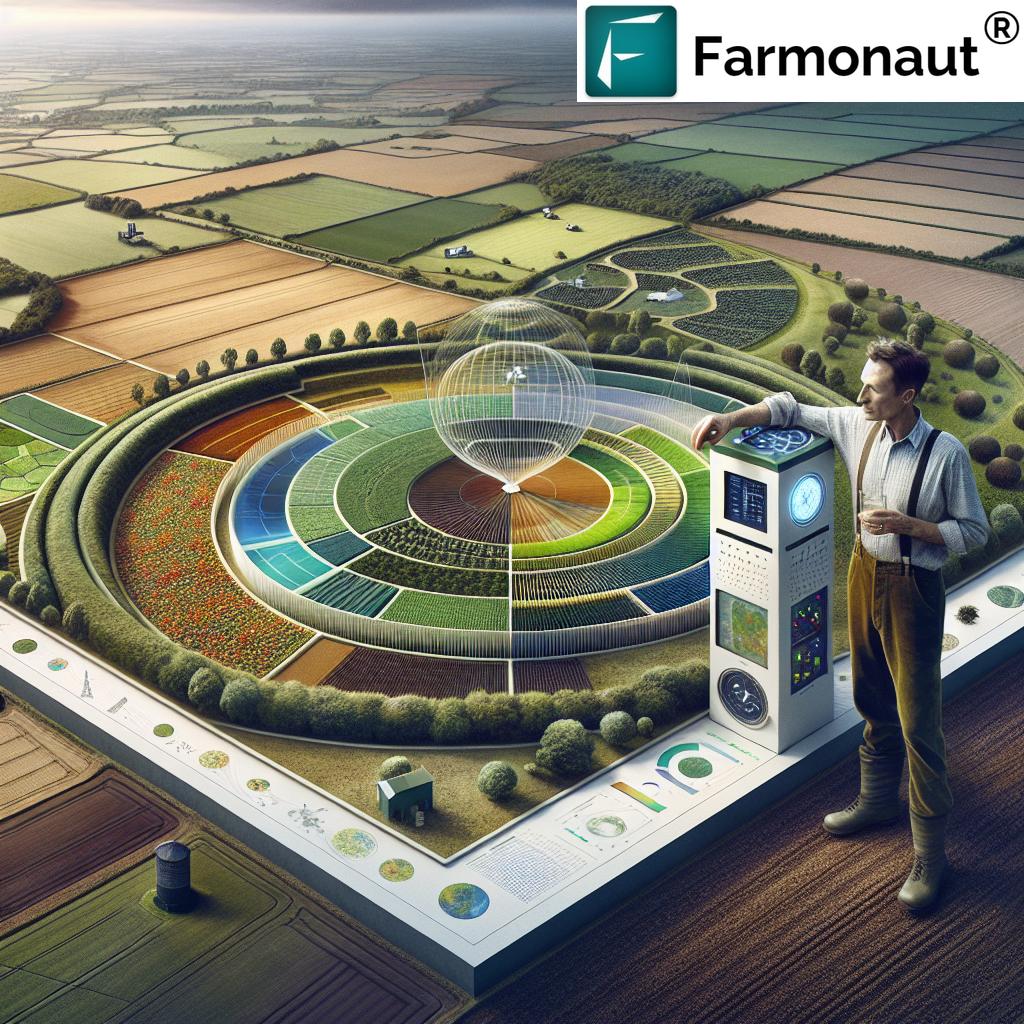
Organic Farming Techniques in Agroforestry Systems
Organic farming principles complement agroforestry systems beautifully, creating a synergy that enhances both environmental sustainability and farm profitability. Let’s explore how organic techniques can be integrated into agroforestry practices.
Benefits of Combining Organic Farming with Agroforestry
- Natural Pest Control: Trees in agroforestry systems provide habitats for beneficial insects and birds that control pests naturally.
- Soil Fertility: Leaf litter from trees enriches the soil, reducing the need for synthetic fertilizers.
- Water Conservation: The presence of trees improves water retention and reduces runoff, benefiting organic crops.
- Biodiversity: The combination of organic practices and diverse tree species creates a rich ecosystem.
By adopting organic techniques within agroforestry systems, UK farmers can tap into the growing market for organic produce while benefiting from the environmental advantages of tree-based agriculture.
Carbon Management in Agriculture
Carbon management is becoming increasingly important in UK agriculture, both for environmental reasons and as a potential source of income through carbon credits. Agroforestry systems play a crucial role in this area.
Agroforestry and Carbon Sequestration
- Tree Growth: Trees in agroforestry systems sequester carbon in their biomass and roots.
- Soil Carbon: The presence of trees increases soil organic matter, enhancing carbon storage in the soil.
- Reduced Emissions: Agroforestry can reduce the need for synthetic inputs, lowering overall farm emissions.
Farmonaut’s platform includes features for carbon footprint tracking, allowing farmers to monitor and reduce their environmental impact. This aligns with the UK’s goals for sustainable agriculture and opens up opportunities for farmers to participate in carbon credit schemes. 

Environmental Farming Incentives Beyond the SFI
While the Sustainable Farming Incentive is a significant program, there are other environmental farming incentives available to UK farmers. These schemes complement the SFI and provide additional support for sustainable practices.
Additional Environmental Schemes
- Countryside Stewardship: Offers payments for managing land in a way that supports biodiversity and landscape character.
- Woodland Creation Grant: Provides funding for planting new woodlands, which can be integrated into agroforestry systems.
- Environmental Land Management scheme (ELM): A broader program that will eventually replace current EU-based schemes, focusing on delivering public goods.
These incentives, combined with the SFI, create a robust framework for UK farmers to transition towards more sustainable and profitable farming practices.
The Future of Farming: Integrating Technology and Sustainability
As we look to the future of UK agriculture, it’s clear that the integration of technology and sustainable practices will be key to maximizing farm profitability while meeting environmental goals. Smart farming solutions, like those offered by Farmonaut, will play a crucial role in this transition.
Emerging Trends in Agricultural Technology
- Precision Livestock Farming: Using sensors and AI to monitor animal health and optimize production.
- Vertical Farming: Integrating vertical farming techniques with traditional agriculture for increased productivity.
- Blockchain in Agriculture: Enhancing traceability and transparency in the food supply chain.
- Drone Technology: Improving crop monitoring and precision application of inputs.
By embracing these technologies and combining them with sustainable practices like agroforestry, UK farmers can position themselves at the forefront of global agriculture.
Agroforestry Systems and Their Benefits in the UK
| Agroforestry System | Crop Yield Improvement | Environmental Benefits | Economic Advantages |
|---|---|---|---|
| Silvoarable | Up to 40% increase | Carbon sequestration, soil erosion prevention | Diversified income from crops and timber |
| Silvopastoral | 20-30% increase in livestock productivity | Improved animal welfare, biodiversity enhancement | Reduced feed costs, additional income from trees |
| Riparian Buffer Zones | N/A (not primarily for crop production) | Water quality improvement, flood mitigation | Potential for biomass production, SFI payments |
Conclusion: Embracing a Sustainable and Profitable Future
As we’ve explored throughout this blog post, the integration of sustainable agroforestry systems and smart crop management offers a promising path forward for UK agriculture. By embracing these practices and leveraging cutting-edge technologies, farmers can enhance their productivity, reduce environmental impact, and tap into new revenue streams.
The combination of government incentives like the Sustainable Farming Incentive and innovative solutions from companies like Farmonaut creates a supportive ecosystem for farmers transitioning to more sustainable practices. As we move towards a future where environmental stewardship and profitability go hand in hand, those who adapt and innovate will be best positioned to thrive.
We encourage all UK farmers and agribusiness professionals to explore the possibilities offered by agroforestry and smart farming solutions. By doing so, you’ll not only contribute to a more sustainable agricultural sector but also set your business up for long-term success in an evolving market landscape.
FAQ Section
- What is agroforestry, and how does it benefit UK farmers?
Agroforestry is the integration of trees and shrubs into crop and animal farming systems. It benefits UK farmers by increasing land productivity, improving soil health, enhancing biodiversity, and providing diversified income streams. - How does the Sustainable Farming Incentive support agroforestry practices?
The SFI provides funding and support for farmers who adopt environmentally friendly practices, including agroforestry. It offers payments for planting and maintaining trees on agricultural land, creating woodland edges, and establishing silvopastoral systems. - What role does technology play in modern UK farming?
Technology plays a crucial role in modern UK farming through precision agriculture techniques. This includes satellite imagery for crop monitoring, AI-driven advisory systems, IoT sensors for data collection, and integrated crop management software. - How can UK farmers benefit from farm data analytics?
Farm data analytics helps UK farmers make informed decisions by providing insights on yield prediction, resource optimization, weather forecasting, and market trends. This leads to improved productivity, reduced costs, and better risk management. - What are the key market trends in UK agriculture?
Key trends include fluctuations in the cereals market, growing demand for high-quality milling wheat, increasing interest in alternative oilseed crops, and rising consumer preference for locally grown, sustainable produce in the horticultural sector.


